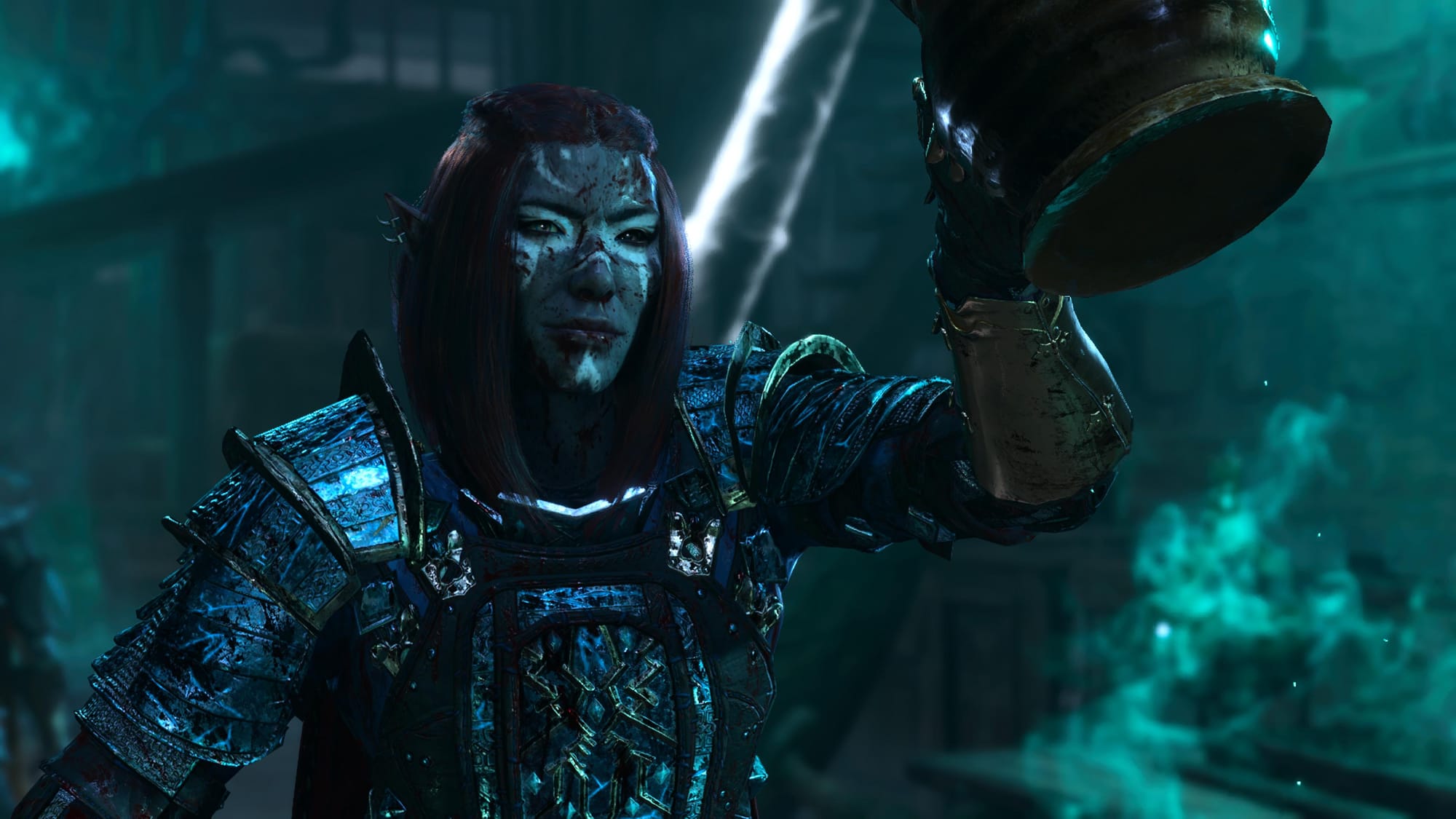How To Be Evil in RPGs When You’re a Chronic Goody-Two-Shoes
Sometimes it's good to be evil
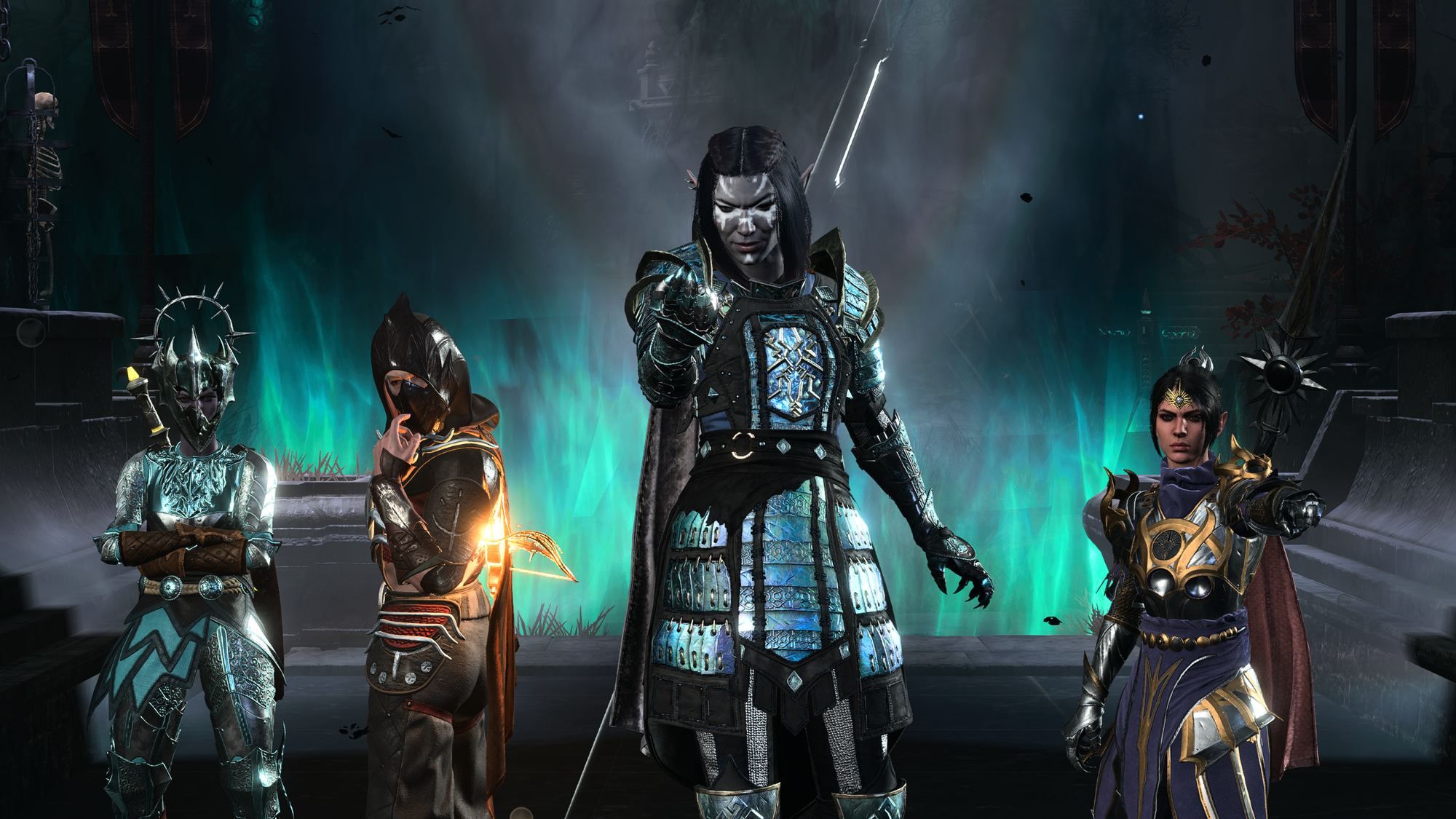
Role-playing video games utilize a feature mostly unique to their genre; injecting elements of you into the game through your choices as the protagonist. While classic RPGs like Final Fantasy 1-9 achieved this personalization by allowing you to simply rename the hero from “Cloud” to your own name, many modern RPGs enhance this feature by giving you the option of creating an entire character from scratch, appearance and all.
You can sculpt the spitting image of yourself, but more wizardly! Or perhaps you want to create a character from a different game, or an actor from a show, or your mom. Whoever!

Through robust character creation, it’s easy to form a sort of personal link to the digital avatar that you invested time and creativity into. They’re uniquely yours. Even if you don’t have complete creative control over their appearance, you have control over their choices. You get to live vicariously through them as a digital extension of yourself. By your actions, this simulacrum has been given will. What does their future hold?
If you’re like me, then you almost always guide your character into becoming a hero that saves the day, and you find it exceedingly difficult to play as a “bad” or “evil” character.
I don’t want to cause harm, I want to save the realm/princess/universe! I want to develop meaningful connections with my companions and persevere against immeasurable odds only because we have each other’s backs that hard!
Yet the voice of curiosity would whisper to me from the void, “What kind of experience are you missing out on? An untapped side of beloved games awaits, if you have the strength.”
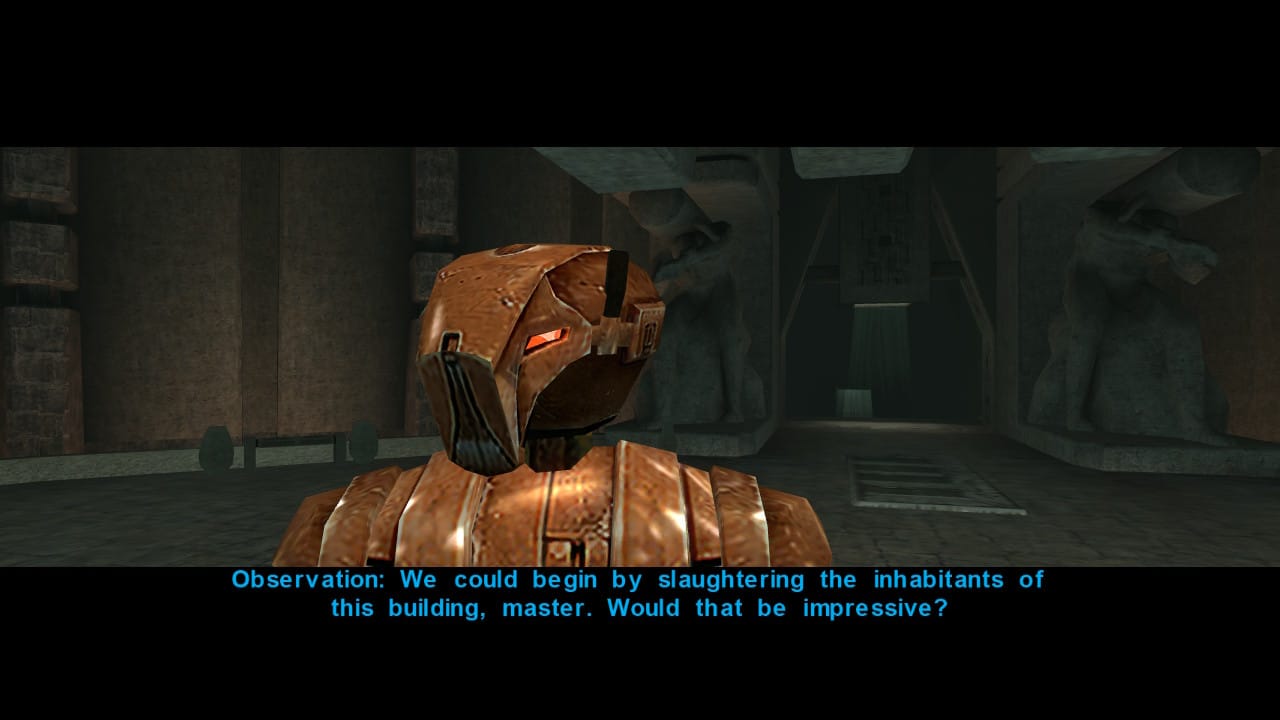
As a chronic goody two-shoes and possibly overly-compassionate person, I’m on a continuous journey to learn how to better tackle “evil” playthroughs in RPGs without personally feeling like a guilty sack of crap. I’ve set up camp during this voyage of darkness to share what I’ve learned.
The games I’ve done or am doing evil playthroughs in:
- Baldur’s Gate 3
- Star Wars: Knights of the Old Republic, and half of KOTOR 2
- Mass Effect 1, and half of ME2 (playing the sequel right after the first one apparently burns me out.)
- Infamous and Infamous Second Son
- Bioshock 1
You may be thinking, why even bother? What’s so good about being bad? Follow along, if you will.
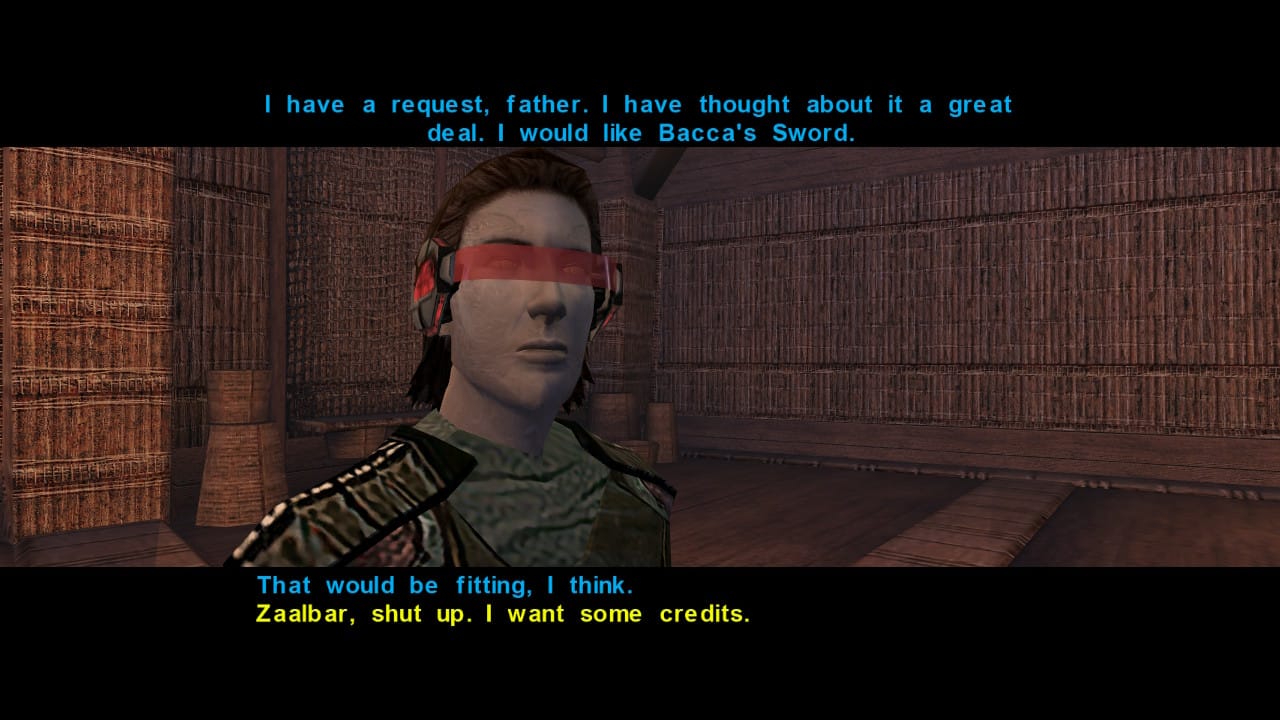
Keep the game fresh by being rotten – What gamer hasn’t wanted a beloved game to feel new again, to essentially forget that you’ve put in dozens, if not hundreds, of hours so you can have a fresh experience? I can’t erase your memory, but playing as the bad guy puts a new spin on something familiar. It’s not so different from putting a self-imposed modifier on a playthrough, like doing a soul level 1 Dark Souls playthrough.
Fully experience what the game has to offer – In massive narrative-driven RPGs like the Baldur’s Gate or Mass Effect series, game developers not only created a good/paragon journey in their games, but they also created an entire evil/renegade journey. If you’ve only played the game through as a good guy, then you’re missing out on a huge chunk of what’s possible. You won’t miss 50% of existing content in the game, but I’d wager on a rough estimate of 20%. In smaller games like Bioshock, you won’t miss out on a ton of narrative content, more so resources, dialogue, and alternate endings. But in Baldur’s Gate 3? Woweee, Larian Studios put in so much work.
Provide an avenue for your anger – I found it weirdly therapeutic to do an evil playthrough when I was in a rough spot personally and harboring a lot of pent-up anger. In the months leading up to my wedding, my now-wife and I experienced an extremely close death in my family, chronic illness, and a very unhealthy living situation. Sometimes it feels like life is a shit cannon and you’re the target. Even with therapy, it can be hard to process all the anger and negative emotions, especially when it’s piled on so high. During this time, I did my Sith playthrough in KOTOR 1, and honestly found it helped me. It felt sort of like listening to really angry or intense music when in a bad mood – it provided an avenue for these emotions to flow through and out of me.
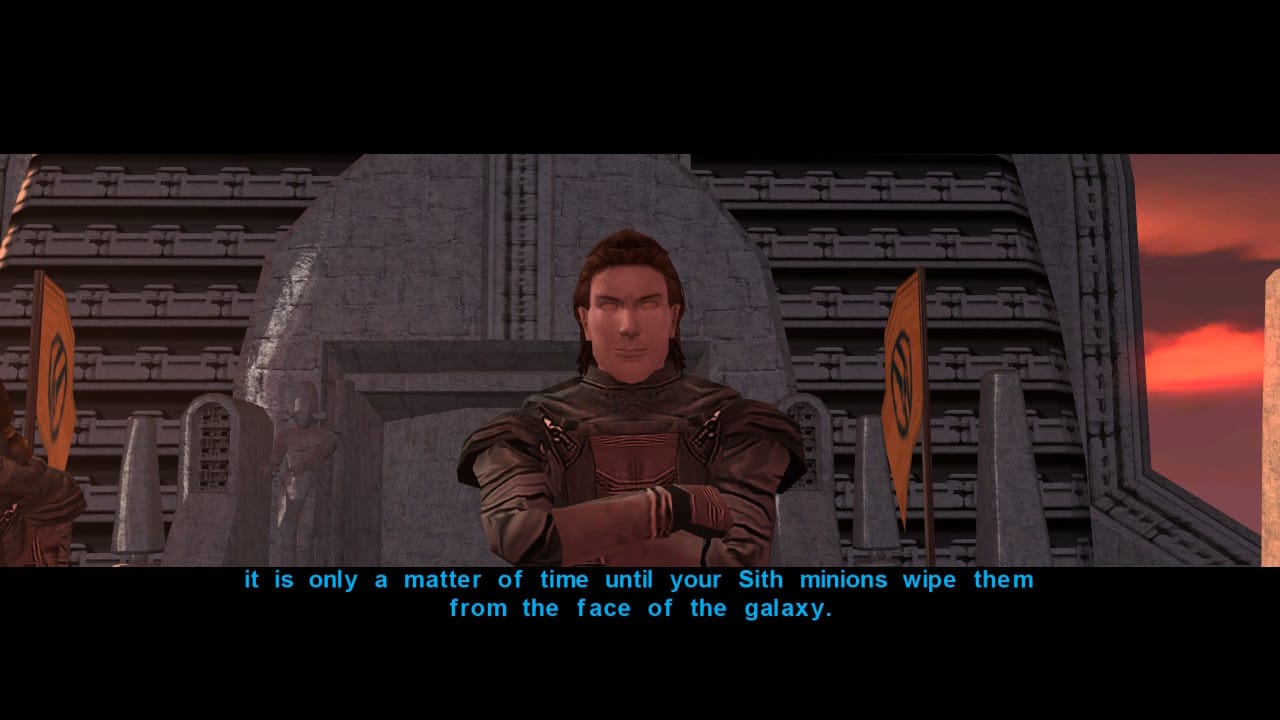
Evil is compelling – The Joker, who is certifiably insane, is the most iconic and captivating Batman villain for a reason. Insomniac’s Spider-Man 2 shows the development of Venom over the course of the game and forces you to take part in their malevolent journey. The Witcher 3: Wild Hunt forces you to make many morally grey choices that can be viewed as right or wrong depending on perspective, and at one point, a few “monsters” put Geralt on trial for his/your decisions. Perhaps you killed what humans thought of as a monster, but it was really a misunderstood creature just trying to exist peacefully. The “evil” or “bad” paths are often engaging in their own right and can produce nuanced, intriguing characters and storylines.
Now with the benefits outlined, let’s move on to tips and methods that I found have worked for me over the years.
Don’t be evil on your first playthrough
Don’t fight your nature on your first go! Play through the game as you normally would. Have a great time and be you. By fulfilling that need and knowing how the game turns out when you’re the hero, you won’t deprive yourself so much on a future playthrough. I can’t say it’ll be easy to be bad later on, but at the very least, you won’t be going against your nature and wondering what you’re missing.

"It's what my character would do"
Sometimes this phrase is a catalyst for great disaster, ruining tabletop campaigns and sparking interpersonal conflict. And sometimes it generates excellent role-playing that elevates the session to new heights. It really depends on the scenario, and RPGHorrorStories on Reddit has a bounty of cases.
This saying can be groan-inducing to some tabletop players since we, the player, are not actually the in-game character, and are equipped with outside knowledge that helps us act in a way that allows the game to be fun and cohesive for everyone. Yet in the comfort of your home within a single-player videogame, you don’t have to think about your actions affecting anyone else.
If you want to play an evil murder-hobo who wanders about in a blood-fueled haze in Baldur’s Gate 3, then go for it! When you’re confronted in-game with a list of options and find yourself grappling with the weight of choosing the bad one, just think “What would this character do?” NOT “What would I do?”
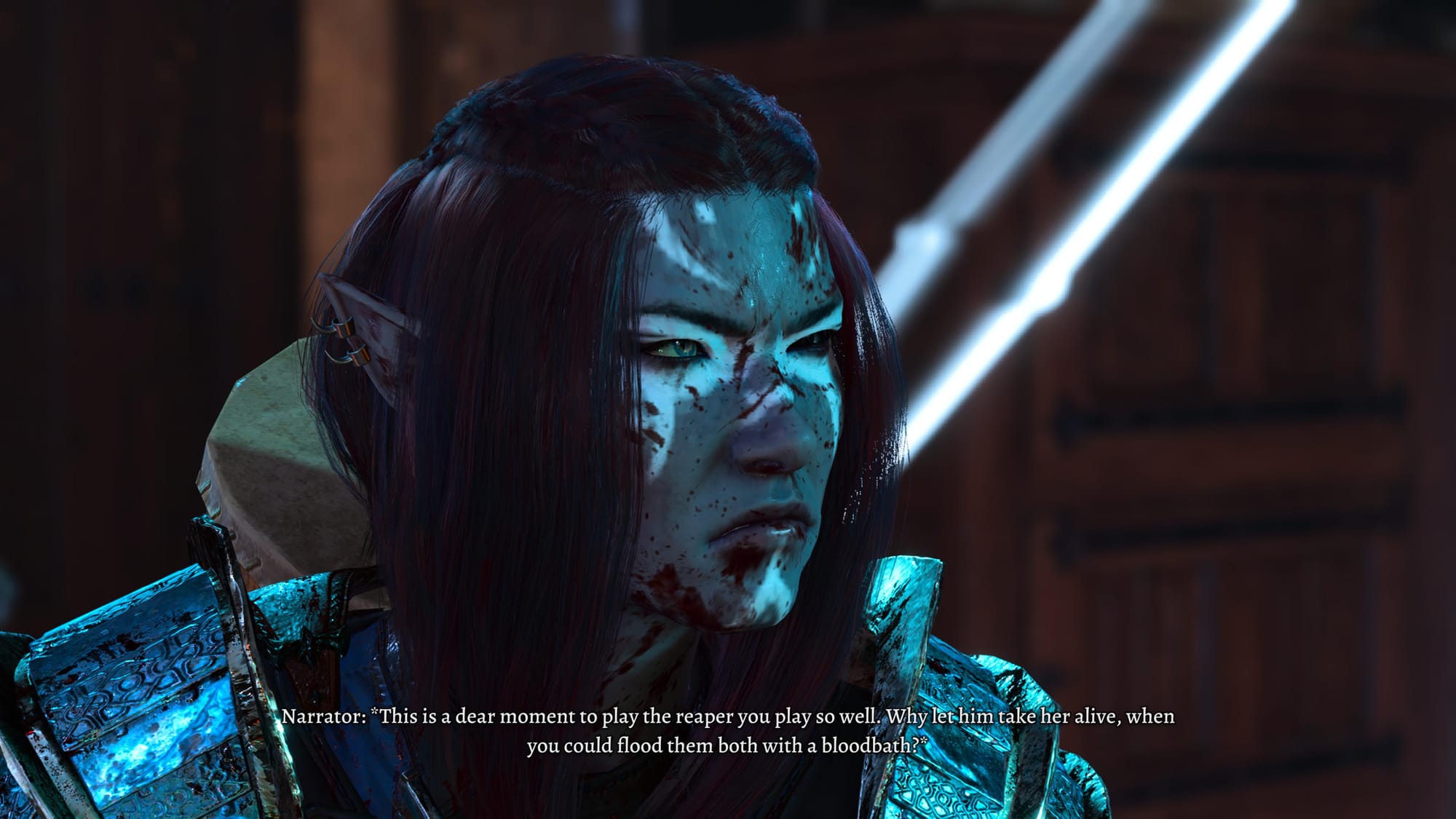
Create a character WAY different from your norm
Everyone has a preferred play style and tends to follow similar patterns in character customization across various games. You might always make a girl with lime green hair, or name your character something that always has the letter “z” in it, or adjust all the facial sliders until you’ve stewed up an eye-searing abomination.
For this evil run, go WAY off book from your usual! Choose a different race or identity. Give them burnt orange hair, or none at all. Don’t include the letter “z” in your name. Make someone kind of beautiful instead of a walking, talking Lovecraftian horror. If your typical pattern already consists of going in wildly different directions, then don’t. The idea is to stray from your norm.
For me, it also helped to make someone who looks evil. My first Baldur’s Gate 3 run was with a pretty standard-looking silver male Dragonborn, and now in my current run, I’m a female Drow Dark Urge with face tattoos and ominous-looking heterochromia.

Don't stop at aesthetics. Try a class or build that you've never done before. Try ability combinations that you'd never choose normally, even if they don't make sense. Deviate from your comfort zone!!
By building an incredibly different character from your usual “good” playstyle, you’ll create some mental distance between you and your character. You’re no longer controlling a digital avatar representing an extension of you and what you would do. You’re instead guiding this character towards a predetermined dark fate.
Commit to the bit
Often used in improv or comedy, “committing to the bit” means to follow a concept or joke all the way through to the end, no matter how wild or uncomfortable. Actors do it. Writers do it. Parents do it. You can too.
Rather than second-guessing yourself during the evil playthrough and possibly wasting hours on the weird character you’ve created, stick with it. By committing, each subsequent decision becomes far easier since you already know the direction you’re headed. As a moderately indecisive person, automatically eliminating multiple choices helps immensely.
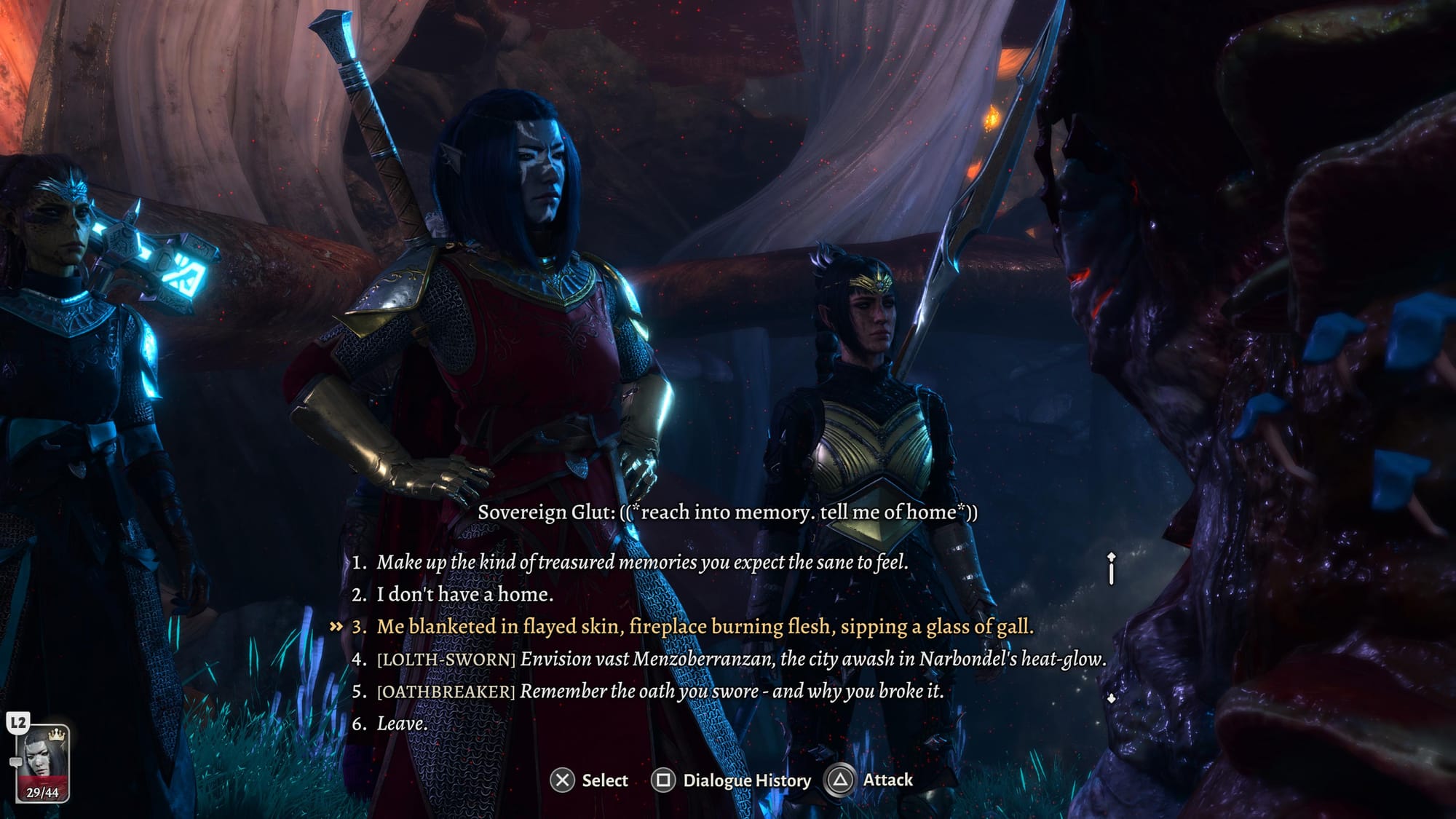
My personal recommendation is to dive right in and make the evil choices right away, just like jumping into the pool rather than submerging a toe at a time. If you don’t make the plunge quickly, it will only get harder over time. And when that potential pivot grows uncomfortably difficult, you might just wind up playing the same way you always have.
On a similar note, it can help to have a plan for your playthrough. And while the plan can be as simple as “be evil this playthrough,” you can also sprinkle in some nuance to spice up your character’s narrative.
For example, I didn’t cannonball right into the metaphorical evil pool in my current BG3 run. I chose the Dark Urge origin character along with the Oath of Vengeance Paladin class, and decided that I would descend into evil over the course of Act 1. The Dark Urge storyline frequently offers sadistic opportunities, so I acted the part of a harsh yet just paladin until I encountered a significant moment that I deemed an appropriate catalyst for their oath to break, and their descent into evil.
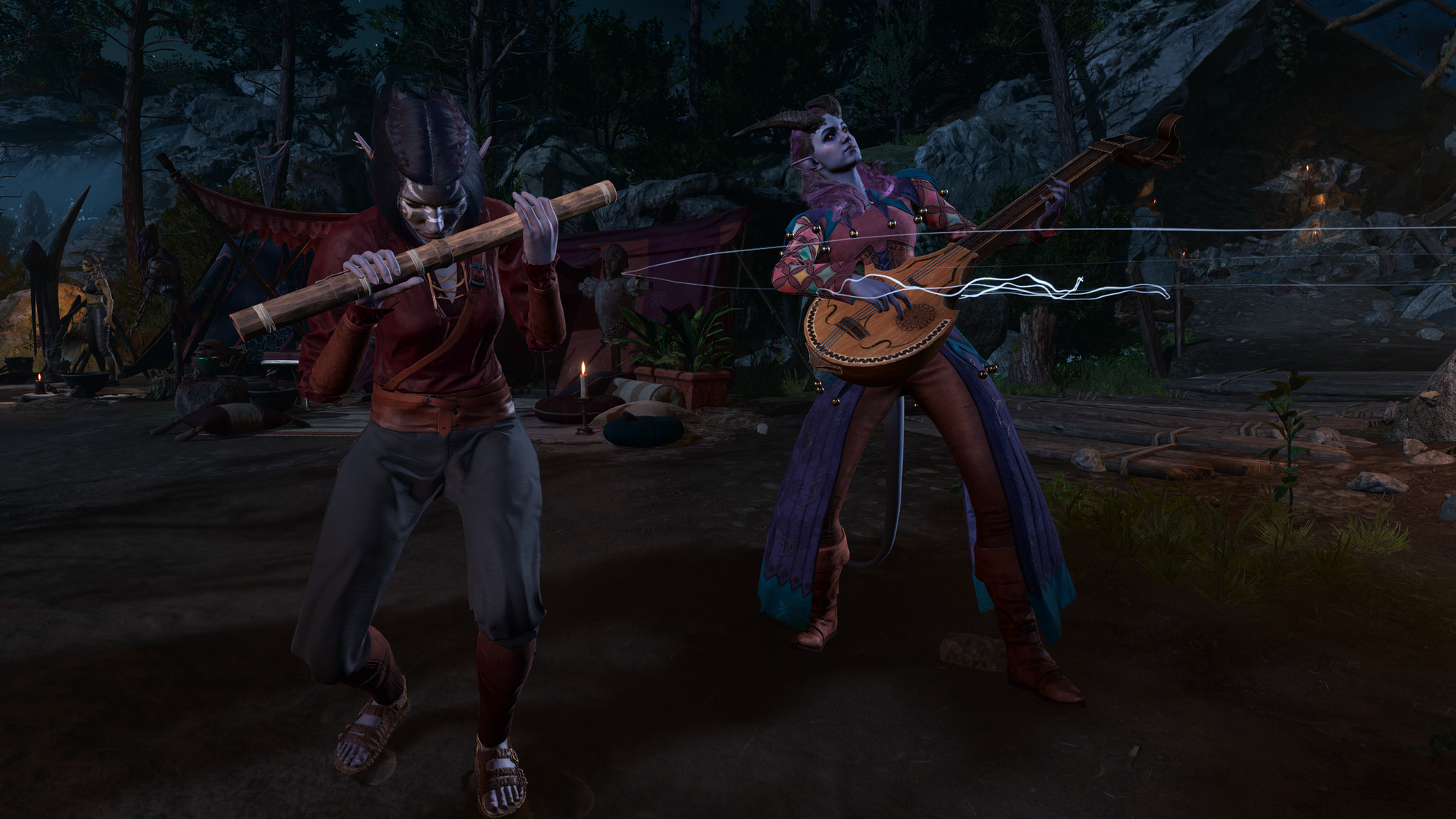
Be Scum, Save Scum
For those of you who don’t know, “save scumming” is when you save your game constantly with the intention of reloading your file whenever something happens that you don’t like. Since you’re saving your file all the time, you never lose more than a few minutes of game time.
I’m recommending some light save scumming here because it’s possible in some RPGs to choose an option that’s a bit too evil for your liking. Or perhaps you selected an option that doesn’t fit the narrative you’re trying to weave. Or by instinct, you opted for the good choice because your heartstrings got tugged by an NPC.
Another BG3 example: In the beginning of Act 1, you can find a magic portal with a hand sticking out of it, and a voice calling out from the portal for help. Grasping the hand and pulling hard enough allows you to meet Gale, the affable wizard companion. But as the Dark Urge, you can choose to fantasize about cutting off the hand, and then the screen turns to black… and yep. You chop off his hand. Gale is gone, never to be a companion. NOPE NOPE NOPE. Reload. Astoundingly evil moment, yes, but it didn’t fit the story I was trying to tell. It was too early to take the dark plunge per my plan.
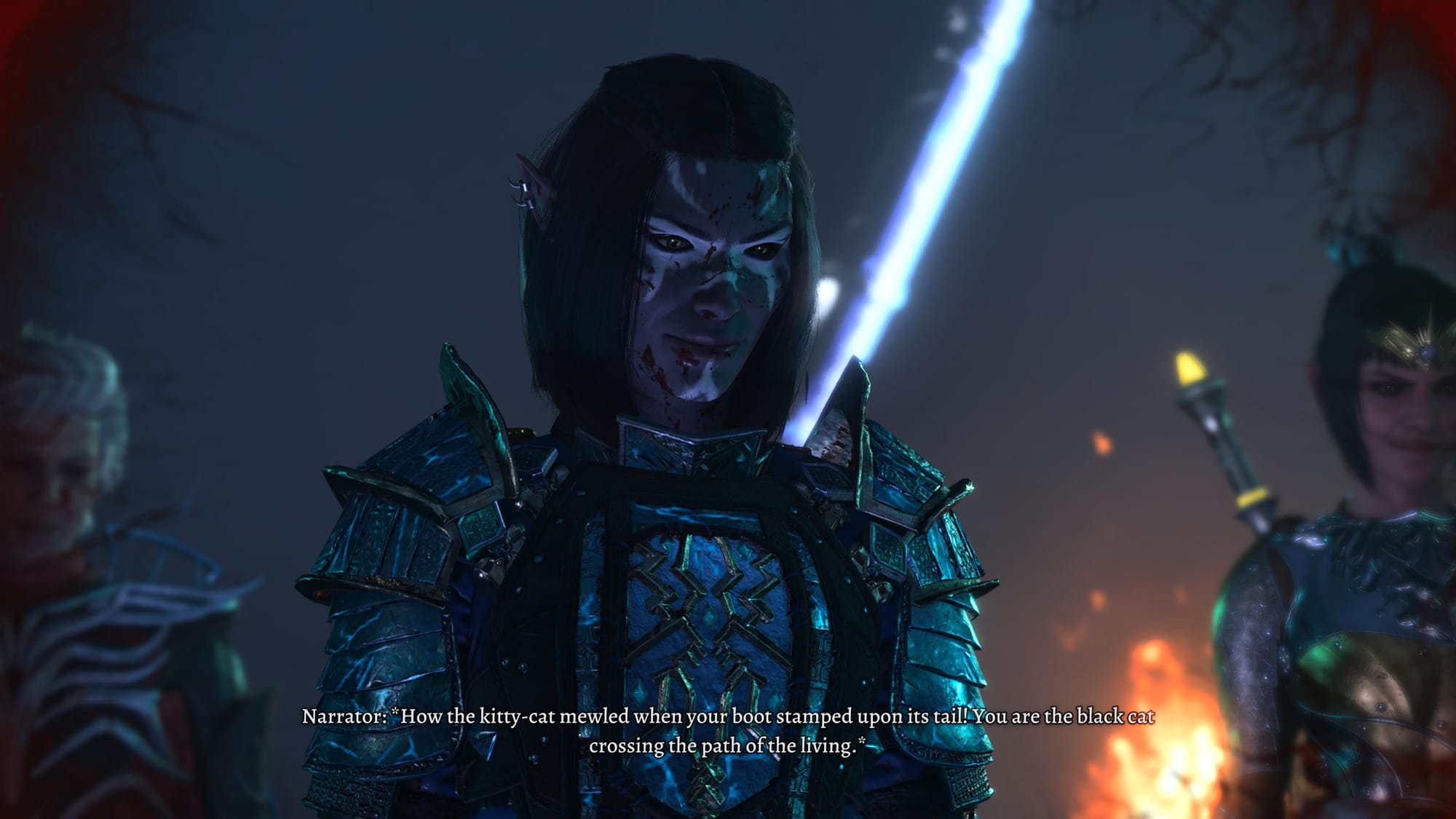
Some people may say “ThAt’S nOt HoW yOu PlAy ThE gAme” and to that I say, whatever. You do you. If this method helps create a more enjoyable experience for you and your run, then embrace it.
I recommend having 2-4 save files, always overwriting the oldest one whenever you save. By overwriting the oldest file, you still keep forward momentum. Don’t create a bajillion files, or else you will leave the door open for every choice you make. Plus, your storage device would fill up with unnecessary clutter, and let’s be real, you’re most likely not going to reload a save from five hours ago, let alone a save from one hour ago.
Get comfortable with discomfort
You may find yourself mentally tuckered out from going against your goody two-shoes nature. Especially in narrative-heavy RPGs, where you may have to make high-stakes decisions with immense impact. So if or when that happens, take a short break and come back later!
It’s all about balance. Discover where your threshold is and what works for you, yet also try to stretch beyond your norm to experience something new and grow as a person. It’s like working out a muscle. If it legitimately gets too uncomfortable to manage, then pull back for a time and rest. I wager that most people don’t like to feel uncomfortable, but eventually you may embrace it.
Hold on, “embrace discomfort?” Sounds kind of masochistic, doesn’t it? Like… *squints eyes* something an evil character would recommend. Yet heroes do it all the time. There is no “hero’s journey” without discomfort and challenges instigating the positive transformation that defines them as a hero.
There’s a reason the advice of “get comfortable with being uncomfortable” is commonly given by successful people of all stripes. When you’re uncomfortable, then you are actively challenging yourself, and that’s how you grow. You’ll learn something new about what you’re capable of.
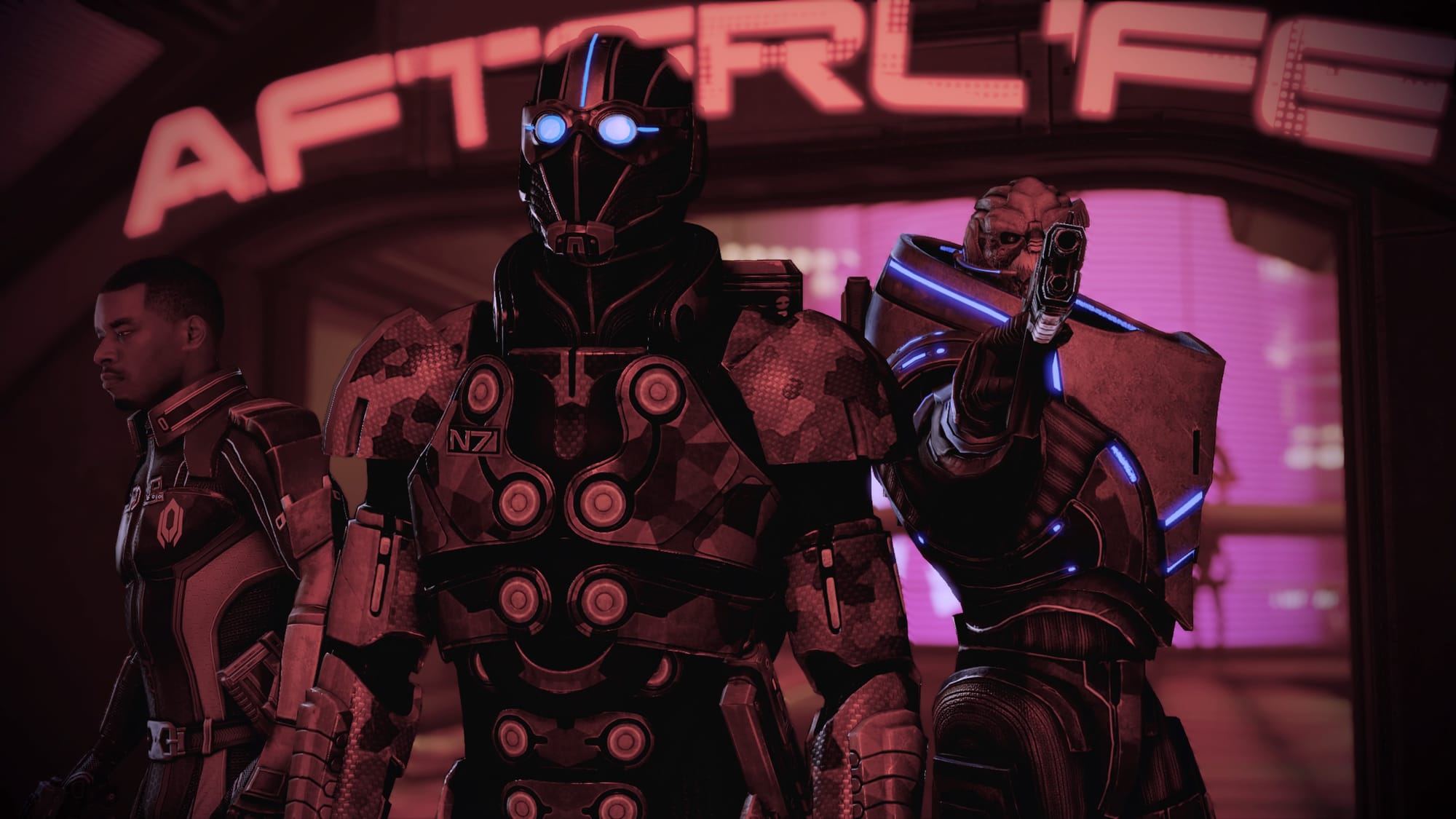
At the end of the day, play in whatever way gets you the best experience. There’s no one-size-fits-all solution, as we’re all unique people with wildly different life experiences. If there are certain parts of an evil playthrough you’ve discovered that you actually quite like, then lean into that! Maybe you’re less of a murder hobo and more of a selfish ass-hat.
You get to define what “evil” is here. It doesn’t have to be the bottom-right choice on the BioWare conversation wheel. Evil can be a matter of perspective. Some of the most engaging villains are simply people who firmly believe they’re right, or have an undeniably good point within their bloodstained logic. Some villains are classified as such only because they’re compared against those with slightly better morals. And some heroes are far more merciless than the villains they seek to destroy. There is nuance in being evil,.
I’m still learning too. While sometimes this journey challenges my willpower or downright induces guilt (I’m looking at you, KOTOR 1 Kashyyyk storyline), overall, I’m having an absolute blast being bad. Join me for a short jaunt on the dark side, and you may too.
